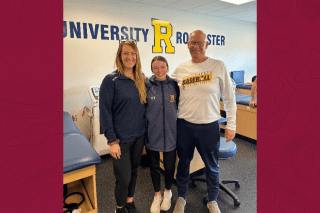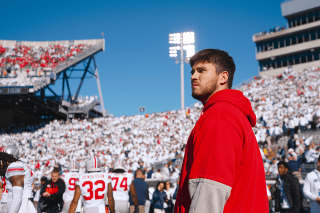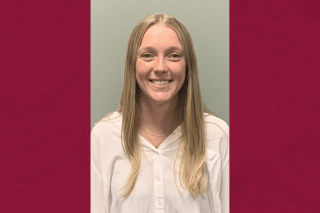CU-Lock Haven student gains hands-on industry experience at University of Rochester
Lock Haven
Posted

This spring, in her final semester of the Master of Science in Athletic Training program at Commonwealth University-Lock Haven, Casey Hibbard, of Ontario, New York, participated in a full-immersive clinical rotation at the University of Rochester (UofR), New York.
Hibbard began her education at The Haven in the fall of 2019 in the health science pre-athletic training 3+2 track. The program enabled her to complete her bachelor’s degree in health science in three years, then the graduate program in two years. In her time at CU-Lock Haven, Hibbard was also a member of the women’s lacrosse team.
“Being in the athletic training program while playing lacrosse enabled me to grow as a student, an athlete and a person,” Hibbard said. “My clinical and interpersonal skills have grown tremendously because of the opportunities provided to me through Lock Haven and the University of Rochester.”
With 23 varsity intercollegiate programs, there were plenty of valuable experiences for Hibbard at UofR this spring. She spent most of her time working with the women’s lacrosse team and the football team. During her time there, she was supervised by head athletic trainer Eric Rozen, and assistant athletic trainers Harry Campbell, Mercedes Ingram, Caitlin O’Brien and Shauny Caruso.
She also assisted at men’s and women’s basketball games, tennis matches, lacrosse games and spring football practices. At each event she performed pre-game treatments and taping, as well as proper equipment assembling, ensuring the emergency action plan (EAP) could be followed if needed.
“I believes one of the most important tasks as the host athletic trainer of an event is to introduce yourself to the traveling team’s athletic trainer and coach,” Hibbard said. “In case of an emergency, it is essential to have an open line of communication so effective measures can be implemented.”
Outside of working practices, games and other athletic events, Hibbard had the opportunity to work in the main athletic training room providing treatments five days a week. This enabled her to practice her evaluation skills and implement rehabilitation programs for athletes.
“All of my course work, as well as my previous clinical rotations, have played a pivotal role in my confidence as a student,” she said. “Each one of my preceptors has made a lasting impact on me. I will take the lessons and skills I learned from them and continue to implement them throughout my career.”
Some of the unique injuries she worked with during her experience were a first metacarpal-phalangeal joint dislocation, femoral neck stress fracture and a spontaneous pneumothorax. In addition to working with the athletic trainers at the university, Hibbard communicated and worked collectively with the team physicians.
“Interprofessional cooperation is so important in every profession, but is critical in the health care field. I learned so much from working with the team physicians on campus,” Hibbard said.



